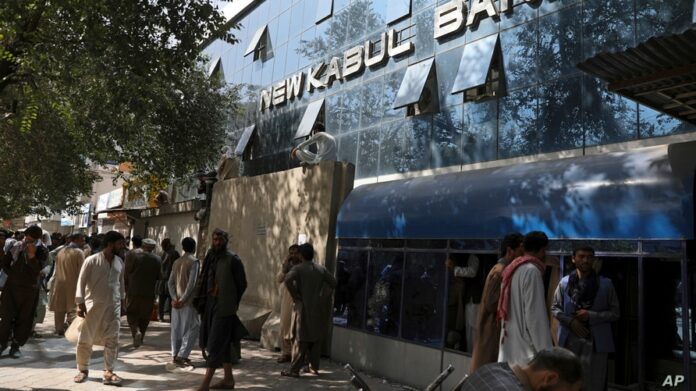PESHAWAR: After the Taliban seized Kabul’s control, all trade activities in Afghanistan came to a standstill, incurring huge financial losses to ordinary Afghanis as well as the business community of the country.
Even after more than two weeks of taking control of Afghanistan, the lack of consensus on the new government is creating new challenges. According to sources 500 megawatts of electricity is being supplied to Afghanistan from Uzbekistan and if the Taliban failed to pay as per the agreement, Uzbek government can suspend power supply.
The former head of Afghanistan’s central bank has said in a Twitter post that the Afghan Taliban currently have access to less than 1% of the Afghanistan’s central bank’s $9 billion assets. Until the Taliban get access to the central bank’s assets, they will have to make alternative mechanism to run the financial affairs of the country. The sources said that several of Kabul’s agreements with the international community are also in danger because of lack of financial resources.
The current generation of electricity in Afghanistan is 255.9 Megawatt which cannot satisfy the requirements of entire Afghanistan. In such a situation, the Taliban could not maintain its agreement with Uzbekistan, there could massive power crises.
There are 11 small and large power generation projects in Afghanistan, the largest of which is the Naghlu Hydral Project which generates 100 MW, 66 MW from the Mahi Hydraulic Project, 33 MW from the Kajaki Hydraulic Project, and 22 MW Surobi Hydraulic Project generates, 11.5 MW from Darunta Hydraulic Project and 13.8 MW from Pul-e-Khumri Hydraulic Project.
Source said the Taliban are yet to form a new government in Afghanistan, so they yet to make any strategy to maintain the supply of 500 megawatts of electricity with Uzbekistan and agreements with other countries, which could lead to a new crisis in Afghanistan.
The Taliban have also seized all oil stocks in the country but the stock will have to be replenished. Iran will be ready to supply oil but the Taliban do not have enough revenue to continue purchase from the neighbouring country.
According to sources, the $1126.5 million CASA project with Tajikistan and Kyrgyzstan in collaboration with the World Bank, will supply 1,000 megawatts of electricity to Pakistan and 300 megawatts to Afghanistan in exchange for transit. The plan may be postponed due lack of government in Afghanistan.
Just few months before the Taliban seized Afghanistan, the World Bank had presented a disturbing analysis of Afghanistan’s economy. After the Taliban control, the future of Afghanistan’s economy is now even in more uncertain situation. There are also fears that the Taliban will not be able to receive international financial support as the international community has not yet recognised the Taliban regime.
After capturing the country, it will now be a big challenge for the Taliban to form a consensus government and pull out the country from internal economic woes and external challenges.























